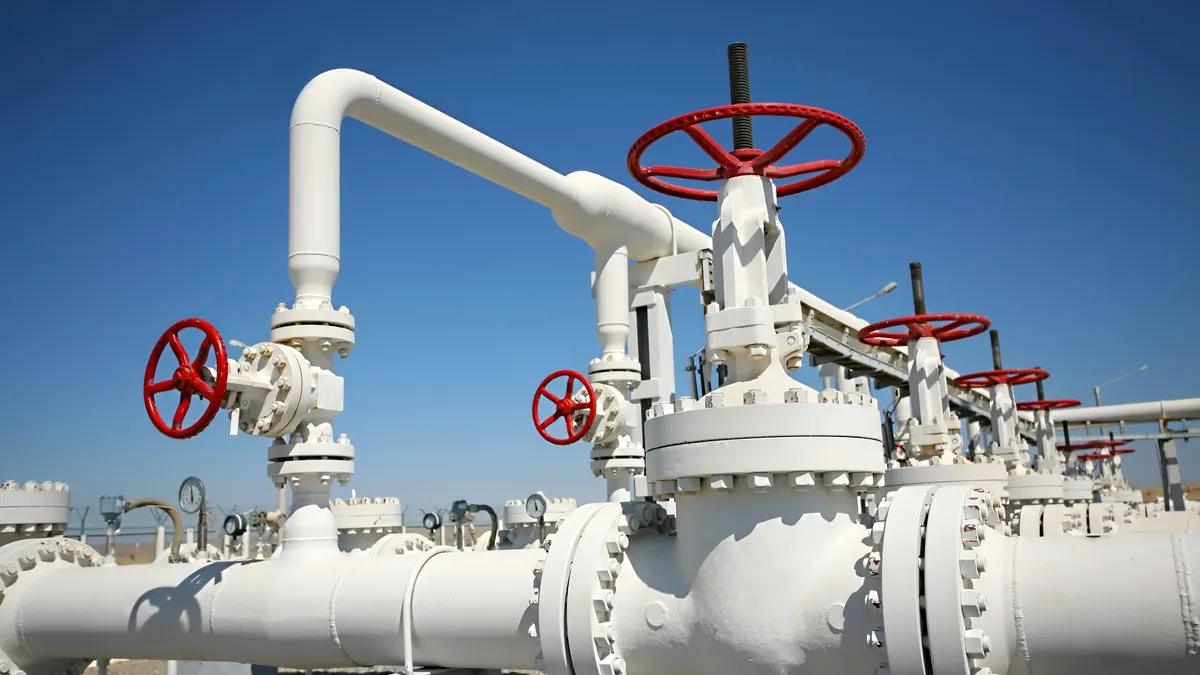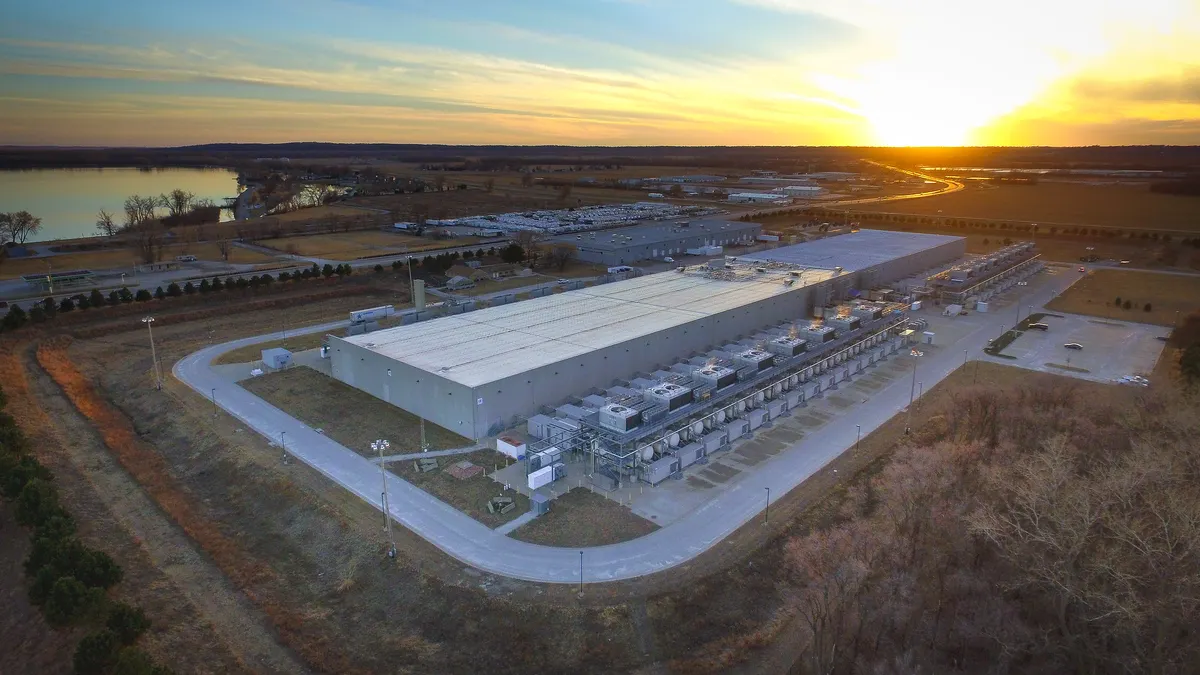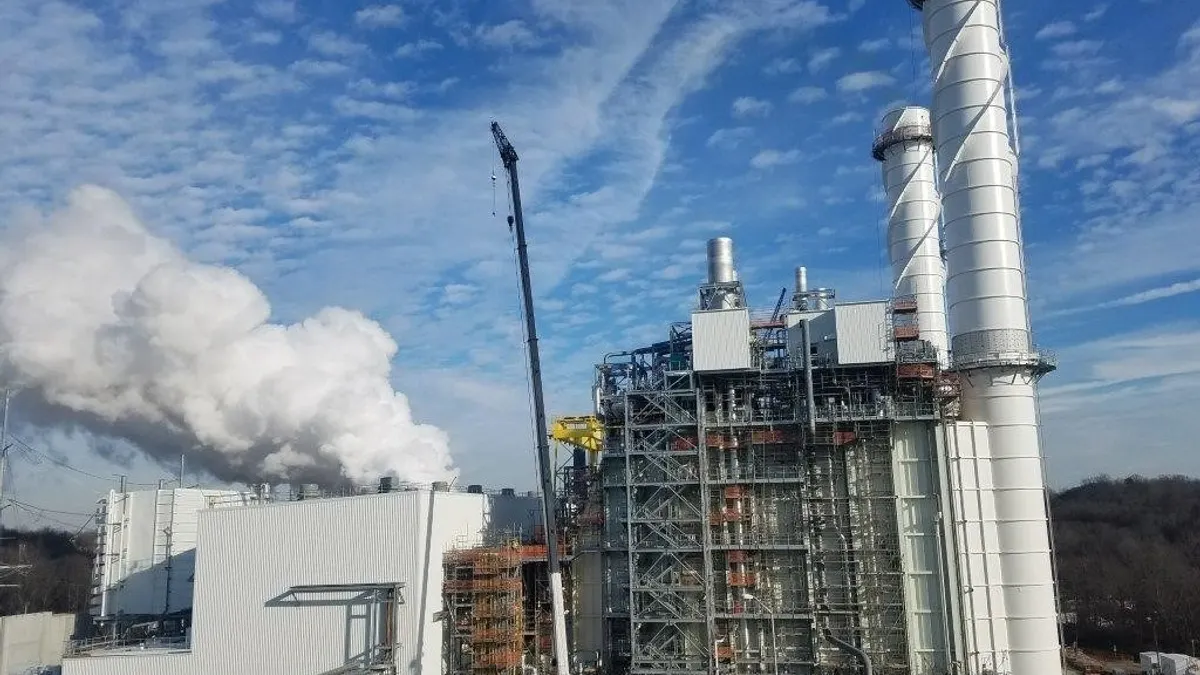The following is a contributed article by Richard D. Kauzlarich, a former U.S. ambassador, co-director of the Center for Energy Science and Policy, and distinguished visiting professor at George Mason University's Schar School of Policy and Government.
The crisis in Ukraine has captured the world's attention for geopolitical and humanitarian reasons, but the conflict has also raised fundamental questions about global energy security. Russia cut off electricity supplies and halted natural gas sales to Finland in response to Helsinki's decision to join NATO. The rest of Europe grapples with how to escape the grip of Russia's stranglehold on natural gas, given emerging divisions within the E.U. regarding the next steps on a Russian oil embargo. U.S. policymakers seek answers to maintain European solidarity in supporting Ukraine while ensuring energy security in Europe and at home.
Putin's invasion of Ukraine requires more U.S. natural gas production to meet our European allies' short-term energy needs as they seek non-Russian sources for natural gas. U.S. liquefied natural gas is part of the solution. However, that requires new investment supported by a clear administration policy to increase natural gas output.
The Biden administration has rightly acknowledged the critical role of natural gas in supporting global energy security. Yet it maintains a strong commitment to achieving “… 50-52 percent reduction from 2005 levels in economy-wide net greenhouse gas pollution in 2030." This duality creates mixed signals about the future of natural gas.
Squaring these two positions is difficult in the middle of the Ukraine crisis, making U.S. and global energy and natural resource (including uranium) security more critical than ever. Using American gas exports through diplomacy and trade initiatives must be a crucial part of U.S international energy and climate policy.
There are three points to consider in encouraging more U.S. natural gas production. U.S. energy policy, done wisely, can meet the short-term energy crisis while maintaining longer-term climate change goals.
First, U.S. officials are supporting European goals to displace Russian energy imports. National security adviser Jake Sullivan has explained that the U.S. supports European efforts to source natural gas from somewhere other than Russia. (The E.U. still obtained 30% of its natural gas imports from Russia in the first quarter of this year.) The United States and the E.U. established a joint task force to increase LNG exports to Europe. President Biden unveiled a security agreement with the European Commission to address comprehensive U.S. and E.U. energy cooperation, including regulatory reform on both sides of the Atlantic to remove barriers to LNG import and export infrastructure.
The Europeans have achieved short-term success for the coming winter as gas storage has filled at its fastest rate ever. But that is short-term. Longer-term, as E.U. Energy Commissioner Kadri Simson has explained, replacing 155 billion cubic meters of natural gas from Russia is easier said than done. And it is more than simply meeting next winter's energy challenge. The U.S. will seriously need to ramp up export capabilities to make this possible.
Second, regulatory actions need to support the policy initiatives. The U.S. has committed to expedited review and effort to speed up approval of additional U.S. LNG export and pipeline capacities. Unfortunately, earlier this year, the Federal Energy Regulatory Commission proposed new rules that would slow the approval of natural gas pipelines. Since placed on hold for further review, these rules would have been a severe problem had they been implemented. A U.S. Energy Information Administration report highlights the need for more natural gas pipeline infrastructure investment to increase domestic natural gas production and forestall higher gas prices. New infrastructure will be required to support renewable natural gas (or biogas).
Third, the U.S. can help meet the rising global demand for natural gas while it leads in developing renewables. The administration can keep its pledge to fund renewable energy development while also addressing the need for more natural gas today. Achieving clean energy targets is only feasible if the administration fully embraces natural gas as a critical element in the energy transition. Using natural gas strategically, the U.S. can position itself as a dependable supplier of low-carbon natural gas, assisting nations in their gradual shift away from fossil fuels, especially coal for electric power generation.
There is no more critical geopolitical conflict than that with Putin following his genocidal invasion of Ukraine. The impact of this crisis is unprecedented in its impact on global energy security. U.S. leadership is fundamental to using U.S. energy production to reduce European dependence on Russia.






















